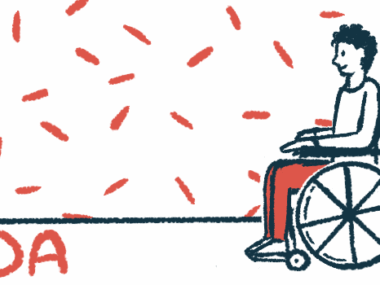Building empathy for Duchenne experiences through theater
Empathy and clear communication are key to improving patient outcomes
Written by |

Last Thursday, I participated in a workshop that used experiential theater to examine healthcare conversations. With a sense of anticipation and hope, I stepped into the unknown, eager to gain insights that could enrich my advocacy for Duchenne muscular dystrophy (DMD), which I have.
The workshop, held by the SingHealth Patient Advocacy Network (SPAN), is part of an innovative program that creates interactive scenarios reflecting real-life healthcare settings. Our session, led by a local applied theater group, featured two skits. The first depicted an emergency room scene, capturing the chaos, emotions, and urgency that patients and medical staff face there. The second, set in a hospital mortuary, explored sensitive interactions about autonomy and grief.
Conversations in healthcare
After each skit, we participants — which included SPAN advocates and healthcare professionals from various Singaporean institutions — engaged with the characters, who were portrayed by four professional actors. The goal was to examine our deeply held beliefs, internal biases, and communication styles.
It quickly became clear how important it is to have open and respectful conversations in healthcare settings. They foster empathy between patients and care providers, ensuring that dignity and respect become standard practice.
As a person living with DMD, these discussions struck a chord with me, because these types of issues profoundly affect my daily life. Healthcare interactions with patients with Duchenne often involve delicate, life-altering conversations, and the scenarios portrayed in the skits reflected my own experiences, both uplifting and challenging. They highlighted the transformative power of empathy and clear communication in improving patient outcomes and experiences. This power gives me hope for a more empathetic and inclusive society.
As a lover of theater, I strongly believe in its ability to provoke meaningful conversations and shift societal attitudes. Watching the actors bring to life challenging healthcare situations sparked ideas about applying similar methods in Singapore’s disability community. I’m excited about the potential for change.
Through immersive theater, we can help society gain a deeper understanding of the lived realities of people with disabilities, and we can break down barriers and foster authentic inclusion and acceptance. Experiential theater can bridge gaps in understanding by providing safe, imaginative spaces to explore perspectives that are different from our own.
For those of us advocating for greater DMD awareness, theater can amplify our voices, ensuring that our stories are told authentically and heard widely. Theater, with its ability to emotionally engage and provoke audiences, can amplify our advocacy to a broader platform, prompting ongoing conversations and driving meaningful change.
Note: Muscular Dystrophy News Today is strictly a news and information website about the disease. It does not provide medical advice, diagnosis, or treatment. This content is not intended to be a substitute for professional medical advice, diagnosis, or treatment. Always seek the advice of your physician or another qualified health provider with any questions you may have regarding a medical condition. Never disregard professional medical advice or delay in seeking it because of something you have read on this website. The opinions expressed in this column are not those of Muscular Dystrophy News Today or its parent company, Bionews, and are intended to spark discussion about issues pertaining to muscular dystrophy.







Leave a comment
Fill in the required fields to post. Your email address will not be published.